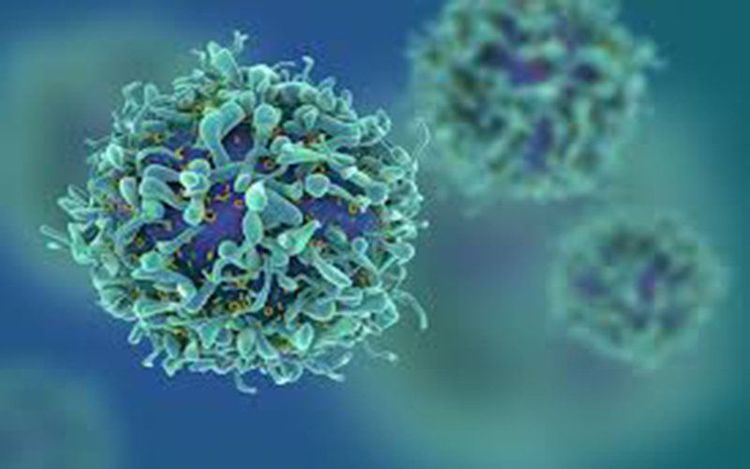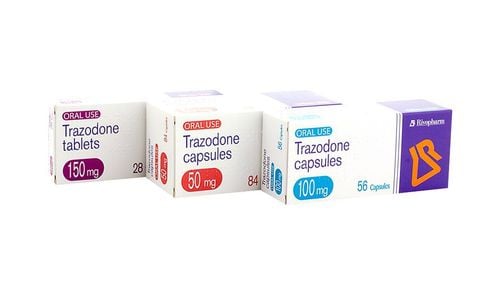This is an automatically translated article.
Getting enough sleep helps the T cells in the body fight infections. The information from this article will prove this statement.1. Sleep Boosts Immune System A lot of research has been done on the benefits of a good night's sleep. The German researchers also found that a good night's sleep also improves the function of T cells. T cells are a type of immune cell that fights intracellular pathogens such as cells. infected with viruses such as influenza , HIV infection , herpes and cancer cells .
Dr. Stoyan Dimitrov at the University of Tubingen said. Research has found a new mechanism through which sleep can support the immune system. It is explained because adrenaline, noradrenaline and prostate levels will drop during the time we sleep.
At the same time, the stickiness of the integrins is stronger. This stickiness is important in helping T cells kill virus-infected or cancerous cells. T cells need to come into direct contact with harmful agents, and integrin adhesion promotes faster and more efficient exposure.
2. Importance of T-cells T-cells play an important role in the body's immune system. When cells inside the body recognize a cell infected with a virus, they immediately activate integrin, an adhesion protein, which then allows the T cell to attach to and destroy the infected cells.
Researchers see T cells as an army of volunteers that protect the body's health. During sleep T cells have higher levels of integrin activation than awake T cells.

Tế bào T có vai trò quan trọng với hệ thống miễn dịch của cơ thể con người
Therefore, sleep has the potential to improve T cell function. For people who sleep poorly, stress hormones can inhibit the ability of T cells to function effectively. High levels of stress hormones can effectively reduce the T-cell immune response.
3. The role of sleep Adults need at least seven hours of sleep per night to improve health and well-being. God. In 2016, the Centers for Disease Control and Prevention concluded that more than one-third of Americans don't get enough sleep. Kimberley Hardin, director of the sleep medicine fellowship program at the University of California, Berkeley.
Many people underestimate the importance of sleep and they don't know that getting less than seven hours of sleep per night regularly has a negative impact on health. Sleep is like anything else in the body and it needs attention for us to be healthy. A deep sleep will make you feel refreshed, full of energy after waking up.
Regularly sleeping less than five hours per night can lead to higher mortality, and sleeping less than seven hours for three consecutive nights will make our body feel like a sleepless night.
Poor sleep can have short- and long-term health consequences. Poor sleep can lead to long-term problems with mood, memory, and blood sugar. Cameron Suzanne Stevens, a sleep neurologist at the University of Kansas Health System. The short-term consequences of bad sleep can include drowsiness, poor judgment, car accidents, mood swings, memory problems, making mistakes at work, and more.

Giấc ngủ kém chất lượng có thể gây các vấn đề khác nhau đến sức khỏe của người bệnh
Chronic poor sleep doesn't just affect your ability to function well the next day. Poor sleep can increase inflammation, blood pressure, insulin resistance, cortisol, weight gain and cardiovascular disease, impaired blood sugar regulation, etc..
A good night's sleep is also protective factor for you. against heart disease. A 2019 study in rats found a link between the brain, bone marrow, and blood vessels that protect against hardening of the arteries. This mechanism takes place only in mice with good quality sleep. The researchers hope that understanding the link between sleep and heart health will pave the way for new treatment options.
4. Conditions for a good night's sleep Despite numerous studies demonstrating the negative health effects of poor sleep. But many people still don't get enough sleep or have poor quality sleep. Conditions for a good night's sleep include:
The bedroom environment must be comfortable, dark, cool and remove distractions from electronic devices and pets. Exercise can promote better quality sleep. Limit alcohol and caffeine consumption as they have an adverse effect on sleep quality. A good night's sleep should be a priority because there's so much going on in our world.

Hạn chế sử dụng caffein sẽ giúp chúng ta có một giấc ngủ tốt
Researchers have suggested that a good night's sleep can boost your immune system. Quality sleep can spur the T cells in your body to fight infections. It enhances the ability of T cells to adhere to and destroy cells infected with viruses and other pathogens. Poor sleep or not getting enough sleep is the cause of short-term and long-term health problems.
Please dial HOTLINE for more information or register for an appointment HERE. Download MyVinmec app to make appointments faster and to manage your bookings easily.
Article referenced source: healthline.com












